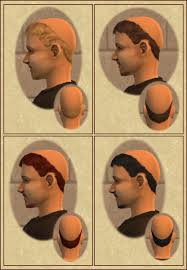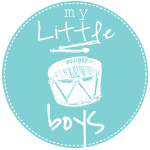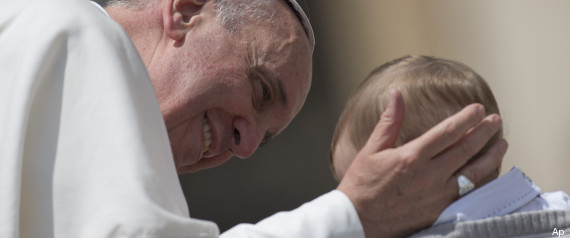Any thorough examination of the Italian culture must, inevitably, include the discussion of coffee.
Coffee permeates Italian daily life: each morning commences with a coffee, each meal concludes with one and on each visit to the house of a friend, relative, neighbour or new acquaintance, the ice is always broken with the three words
vuoi un caffè? - would you like a coffee?
In Australia, I sometimes go out for coffee as a treat. I rarely do it alone and usually arrange with a friend to do so several days (sometimes even more) in advance. We are not surprised when the coffee takes at least a quarter of an hour to arrive. We sit down at a table to chat and end up spending up to an hour in the café. We are used to the exorbitant price we have to pay for this beverage. We're used to it because everything is expensive here these days. The cost in itself makes the outing a treat.
In Sicily, it was not unusual for my partner to pull over on the side of the road next to a bar (what we call cafes in the English-speaking world) and pop in for a coffee four or five times a day. On his way to work, he would stop by the bar for a coffee and a
cornetto - a croissant. It is normal there for workers to eat breakfast in the bar on a daily basis. After having finished dinner at home, it is equally normal for people to wander down the street every night to the local bar for an evening coffee. In Italy, no matter which town or city you find yourself in, a bar will almost always be in walking distance from you.
It was mainly men who filled the bars in the mornings and the evenings in Sicily. The reason for this is partially cultural and partially due to current social circumstances. The current social circumstances in Sicily have led to very high unemployment meaning that women (especially in small villages such as the one where we lived) often do not return to work after having children and may not even be employed even if they do not have children. This means they would not be heading off to work in the mornings and are therefore not stopping by the bars for coffee as often as men are. Culturally, Sicilian society is still very much male-dominated and many women in small villages still live a life very attached to the home. So in the evenings, although on a Saturday night or on special occasions whole families would go out to the bar together for
gelato and a drink, on a normal night, the women would stay home and look after the kids and the men would wander down to the bar where they would bump into friends and have a chat and a coffee (and usually an accompanying cigarette).
The custom of congregating publicly to drink coffee is not simply based on habit, addiction to caffeine or a routine excuse to get out of the house, however: it penetrates far deeper into the Italian culture than any of those things. It is an integral part of their social structure. But I will get to that at the end of the post ...
The first time I went into a bar in Sicily, I was quite tired and was looking forward to sitting down and resting for a while. I was shocked when I realised that the bar actually had no tables and chairs and that patrons had to stand (this is not the case in all bars, but it is in many). I quickly had to get used to the fact that the coffee culture in Sicily does not involve almost hour-long sit down chats. Italians don't muck around when they have coffee; it's prepared quickly and drunk quickly - almost invariably standing up. Luckily, it doesn't cost much either. If the cost of a coffee had been equivalent to Australian prices, my partner's four to five cups a day would rapidly have sent him bankrupt!
Sugar is added or omitted according to taste, but it is taken for granted that when you order
un caffè you want the short, milk-free coffee that we call an
espresso.
Just as it is the language of classical music, Italian is also the language of coffee. All the terms used to describe variations of the drink in the English speaking world are Italian and interesting, these names all mean something descriptive relating to the appearance of the beverage itself. Let's look at the literal meanings of the names of some of these different types of coffee and how these words can be used in everyday language, starting with the all-important
espresso.
As you may have guessed, the word
espresso is Italian for 'express', a fitting name for this drink that is swigged back speedily while standing up.
* Bevo un espresso ogni mattina - I drink an espresso every morning
* Devo prendere il treno espresso per Roma stasera - I have to catch the express train to Rome tonight
Ristretto
The word
ristretto means restricted, narrow, tight, close, limited, shrunk or taken in, depending on the context in which it is used. It comes from the verb
restringere.
A
ristretto coffee is a shorter version (usually half the size) of an
espresso. Since it contains less water, the flavour of the coffee is therefore more pronounced.
* Mio compagno prende sempre il caffè ristretto - my partner always has a 'ristretto' coffee
* Ho lavato il mio vestito con aqua calda e mi si è ristretto - I washed my dress in hot water and it shrunk
Latte
In Italy, if you wanted this type of coffee, you would order a
caffè latte - a milk coffee - because the word
latte by itself simply means 'milk'.
A man and a woman I know who do not speak Italian and who shall remain nameless, were on holiday a few years ago in Italy. We had arranged to meet them somewhere in Naples (not because we wanted to, but because one of them is related to my son) but our journey from Sicily was long and we inevitably got delayed and weren't there to meet them at the exact time we had agreed upon. When we did get to our meeting point, about an hour later (which isn't too bad considering we were, after all, in a country renowned for its inattention to schedule) we found the two people in question with very long faces indeed. When they explained the cause of their sulkiness, I couldn't help but indulge in a little internal giggle: it turns out that they had bided their time by going to McDonalds to get some coffees. He had wanted a flat white, had asked for "
un caffè" and had been given an espresso. But here's the best bit: she had wanted a
latte, asked for one, and got a glass of milk :)
* Non piangere sul latte versato - There's no use crying over spilt milk
* Andiamo a prendere un caffè latte - Let's go and get a
latte
* Non dimenticare il latte! - Don't forget the milk!
* Il latte è acido - the milk is sour
Cappuccino
As you may have already heard, the cappuccino drink was named after the Cappuccini Friars - a reform of the Franciscan movement who broke away from the Francisan Monks in around 1528. While the monks lived a cloistered life, the friars were not enclosed and lived among the people. The Cappuccini Friars dressed in a brown robe with a
cappuccio - a hood. With the hood on, the shape and colour of their uniform was symbolic of the wooden cross on which Christ died.
The suffix '
ino' denotes a diminutive in Italian, so a
cappuccino literally means a 'little hood'. When steam wands were added to espresso machines around the 1920s, allowing milk to be heated and frothed, the frothy coffee as we know it emerged. When poured correctly, a circle of white is encircled by the brown of the coffee and looks similar to the way these monks, who were nicknamed
cappuccini (little hoods), wore their hair ...
 image source
* Questo cappuccino è troppo caldo! - this cappuccino is too hot!
image source
* Questo cappuccino è troppo caldo! - this cappuccino is too hot!
* Ieri, ho incontrato un giovane frate cappuccino - Yesterday, I met a young Capuchin Friar
Macchiato
The word
macchiato literally means 'stained' and comes from the verb
macchiare - to stain.
A
caffè macchiato (also called an
espresso macchiato) is made by adding a little bit of milk to an espresso coffee. The white milk on the black coffee gives the appearance of a stain. Italians would never randomly select a name for something, especially if that something fell into a culinary category. Always, their language is descriptive and symbolic.
* mi sono macchiato la camicia di caffè! - I stained my shirt with coffee!
* ti sei macchiato le mani! - you stained your hands!
* ti sei macchiato i pantoloni? - did you stain your pants?
* 'Il Prato Macchiato di Rosso' è un film d'orrore italiano degli anni settanta - 'The Field Stained Red' is an Italian horror film from the 70s.

image source
Affogato al caffè
An affogato is a dessert which can be made using various ingredients and does not always include coffee. For example, you can make an
affogato alla banana (banana affogato) and
affogato alla cioccolata calda (hot chocolate affogato) . The word '
affogato' is Italian for 'drowned'. An
affogato al caffè is a scoop of vanilla ice-cream 'drowned' in a shot of coffee - the ice-cream is placed in a glass and an espresso is poured over the top.
* Vorrei un affogato al caffè per favore - I would like an affogato please
* Questo è il lago dov'è affogato la pecora - this is the lake where the sheep drowned
* Il nostro povero sindaco è affogato nel mare - our poor Mayor drowned at sea
Caffè Americano
Literally meaning 'American Coffee', a caffè americano is what know in Australia as a long black - hot water added to an espresso.
If you wanted to order what is known in Australia as a flat white, you could ask for "
un caffè americano con latte" - an American coffee with milk.
Zabaione al Caffè

You're unlikely to find this in an Italian bar, but if you feel like trying something different at home, you could whip up this coffee concoction which involves espresso, sugar and beaten egg yolks. I like this milk-free version of the drink so much
I even wrote a whole blog post about it.
Caffè Corretto
 image source
Corretto
image source
Corretto is Italian for 'corrected', the past participle of the verb correggere - 'to correct'.
I think someone had a bit of fun naming this drink; its ingredients include a shot of espresso and a shot of liqueur (traditionally grappa). So perhaps the original namer of the beverage believed this was the correct way for coffee to be drunk :)
No photos of my own here for this one I'm afraid ... none of the Aussie cafes we visited yesterday afternoon to take last minute shots for this post were serving alcohol-laced coffee!
* Si può fare il caffè corretto anche con la sambuca oppure il brandy - You can also make caffè corretto with sambuca or brandy.
* Questo è grammaticamente corretto in italiano? - is this it grammatically correct in Italian?
* Papa Francesco dice: il Vangelo condanna il politicamente corretto. Parlare con la simplicità dei bambini - Pope Francis says: the gospel condemns the politically correct. Speak with the simplicity of children (a quote from this article in the Italian version of the Huffington Post).
Other useful coffee language:
* con zucchero - with sugar
* zuccherato - sugared
* amaro - literally 'bitter' - used when referring to coffee to mean ' without sugar'.
* Io il caffe lo prendo amaro - I take my coffee without sugar
* questo caffè è troppo amaro! - this coffee is too bitter!
* si mette la stevia al posto dello zucchero in questa ricetta - you use stevia instead of sugar in this recipe
* quel ragazzo è dolce come lo zucchero - that boy is as sweet as sugar
So now we have talked about the language of coffee, but we can't conclude the lesson without looking at the importance of coffee to Italians.
When my partner, Giuseppe, first came to live in Australia two years ago, he found it very hard to adjust to our way of life. He was nervously energetic and constantly asked me if we could go out and get a coffee. In the initial weeks that he was here, we were staying at my parents' house which was a ten minute drive in the car from any cafe of any description. We would go out sometimes, but as I mentioned before, the price of coffee is high here and on a couple of memorable occasions, we actually waited over half an hour to be served two espressos which totalled in price more than what most Italians would earn in any hour working in a bar.
Very quickly, I became frustrated with his insistence of going out for coffee so frequently, and this turned into a rather heated argument, in which I said something about how unnecessary is was to go to the bar every single day several times a day anyway.
"
Allora non hai capito niente" - then you haven't understood anything - he told me.
"We don't just go to the bar to drink coffee. We go to the bar to stay connected with what's going on, to keep an ear to the ground, to network. We don't search on the Internet for a plumber or a stone mason or a mechanic. I go to the bar in the morning and I overhear someone say their cousin wants to build a stone wall outside his country house and I say 'I'm a stonemason, get him to give me a call'. Or I bump into my uncle at the bar and I say 'All the toilets are blocked in my house, do you know a good plumber?' and my uncle says 'yeah, my wife's cousin's sister's husband is an excellent plumber. I'll get him to give you a call". Or a friend of mine is moving to our town and is looking for a small place to rent. So I ask the barman "have you heard of any good one-bedroom places up for rent?" and he says "No, but I'll ask around" and three days later when I go to the bar again in the morning, the barman knows someone whose friend's cousin or whose cousin's friend has got the perfect place and it's a done deal.
If you don't go out and drink coffee in Sicily", he said seriously, "you might as well be a hermit. That's how business is done. Coffee is the thread that weaves all these business interactions together".
We've lived in this town in Western Australia for two years now and Giuseppe's got used to the fact that we're a weird mob and we do things differently here. We hadn't gone out together for coffee for quite a while, but yesterday, as we were doing the rounds of the town, visiting three cafes in one afternoon to take the photos for this post, I noticed a funny thing ...
In each place we went, Giuseppe went over and talked to someone. Each time, it was someone I didn't recognise. And each time, when I asked him who he'd been chatting to, the answer wasn't quite
a friend's cousin or a cousin's friend, but it was "a workmate", or a "friend of a friend", or a "a friend of a guy at work"...
Ah, you can take the Sicilian out of the coffee culture, but you'll never take the coffee culture out of the Sicilian!
So tell me, qual è il tuo caffè preferito? - what's your favourite coffee?
I hope you'll join us again next Monday ... we'll be talking about family (the only thing in Italy that's more important than coffee!)



























